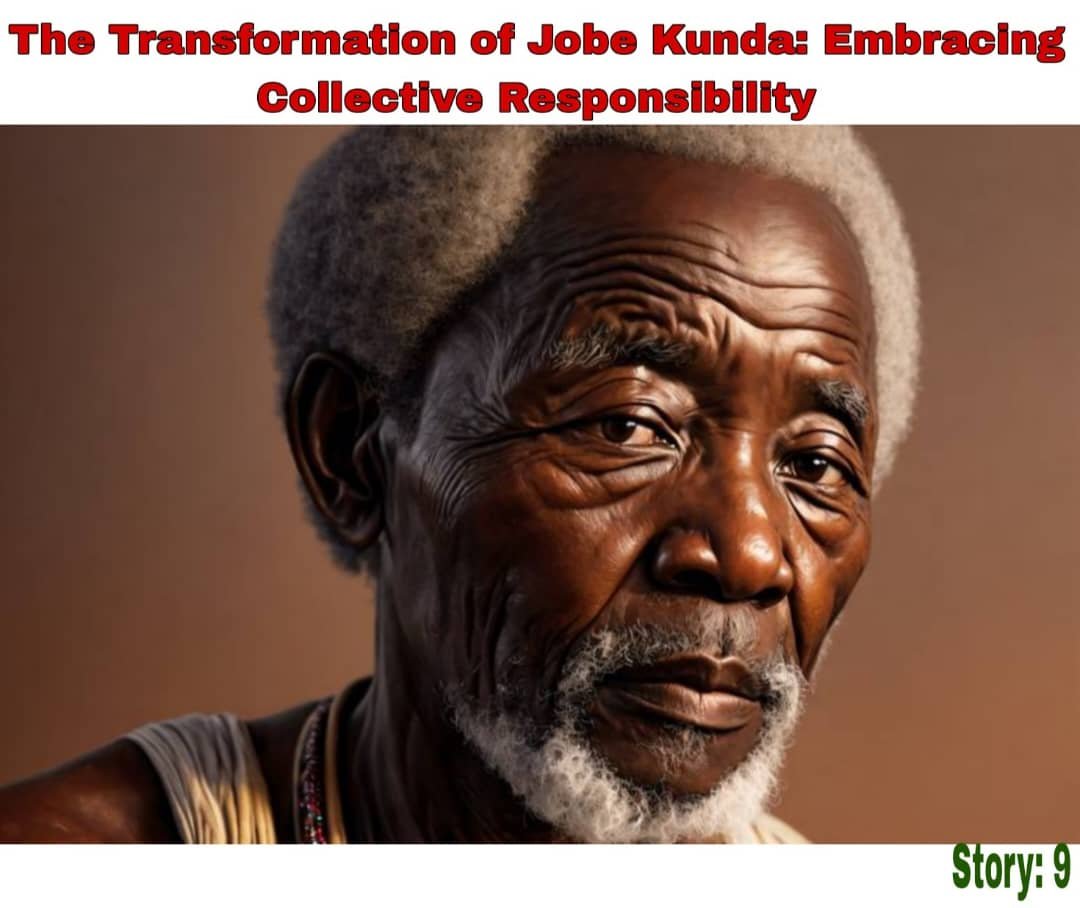The Transformation of Sibit Jobe Kunda: Embracing Collective Responsibility
𝑩𝒚: 𝑺𝒖𝒍𝒂𝒚𝒎𝒂𝒏 𝑵𝒋𝒊𝒆 (𝑺𝒐𝒍 𝑺𝒍𝒊𝒎)
In the heart of a vast and fertile land, there was a village named Sibito Jobe Kunda in the Lower River Region. The people of Jobe Kunda were known for their stubborn ways, often engaging in corruption, bribery, and other harmful practices. The village suffered from disorder and mismanagement, and there was little respect for time or transparency. Public service was faltering, and communication between leaders and villagers was broken.
Leading Jobe Kunda was an alkalo named Bai Amat Jobe. Alkalo Jobe was a visionary and deeply cared for his people. He knew that if the village continued on this path, their future would be bleak. Jobe believed in the wisdom of change, understanding that true progress could only come if the villagers changed their ways of thinking and behaving. The theme that Jobe emphasised was "Transformation Through Collective Responsibility."
With determination in his heart, Jobe gathered the villagers for a meeting under the ancient baobab tree. He spoke with passion, sharing these words: "Progress is impossible without change, and those who cannot change their minds cannot change anything."
Initially, many were sceptical. Change was uncomfortable, and habits were hard to break. But Bai Amat Jobe knew that the real transformation had to start from within each person. "Until something changes within you," he told them, "nothing changes around you. Every change begins from within; without a change within, there can never be a change without."
To guide this transformation, Jobe introduced practical solutions:
Workshops and Education: Jobe organised workshops focused on ethics, the importance of time, and community service. He brought in wise elders and successful leaders from other villages to share their experiences and teachings, emphasising the theme of collective responsibility.
Transparent Governance: He established a new system of transparent governance where decisions were made openly. Villagers could attend meetings to express their concerns and ideas, ensuring that everyone was heard and fostering a sense of communal ownership.
Community Projects: Jobe launched community projects that required collaboration and honesty. One such project was building a communal garden. This encouraged villagers to work together, share resources, and rely on transparent practices, embodying the theme of working together for common good.
Incentives for Integrity: To combat corruption, Jobe introduced rewards for villagers who demonstrated integrity and honesty in their dealings. This not only motivated many but also changed the perception of success in the community.
Time Management Initiatives: Recognizing the importance of respecting time, Jobe set specific times for village gatherings and workshops. He was unwavering in his commitment—if a meeting was scheduled, he began promptly, even if only one participant arrived on time. Those who were late often arrived to find everyone had gone home. Seeing this, the villagers realised Jobe meant business and started to adjust, slowly graduating from the so-called "Gambian time." This promoted respect and accountability among the villagers.
Open Communication Channels: To rebuild trust, Jobe set up open communication channels between the villagers and leadership. Regular forums were held where both challenges and achievements were discussed, fostering a culture of understanding and collaboration and reinforcing the idea of collective responsibility.
Slowly, these changes began to take root. Villagers who once engaged in corrupt deeds started to see the benefits of honesty and transparency. They realised that by changing their mindset and embracing the theme of collective responsibility, they were not just improving their own lives but also transforming Jobe Kunda into a thriving village.
With time, Sibito Jobe Kunda's new way of life attracted visitors from distant lands who wanted to learn from their success. The village became a symbol of positive change and cooperation, all thanks to Alkalo Jobe's belief that true change starts from within and that a community's strength lies in its collective responsibility.
Through his leadership, Bai Amat Jobe proved that when minds change, worlds change. His story inspired many, reminding us all that progress begins with a single decision to embrace something new and that together, anything is possible.

